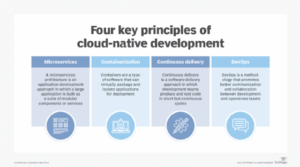
January 10, 2023 — Facebook, YouTube and other social media platforms announced this week that they would remove content praising or supporting the recent attacks on Brazil’s government buildings, a content moderation decision that closely echoes tech platforms’ response to the U.S. Capitol insurrection on Jan. 6, 2021.
A Meta spokesperson said that the company had designated the attacks as a “violating event” and would therefore be “removing content calling for people to take up arms or forcibly invade Congress, the Presidential palace and other federal buildings,” according to CBS MoneyWatch.
Experts have drawn comparisons between the social media activity leading up to the U.S. and Brazil riots, particularly in regard to algorithmic recommendations of disinformation. In the weeks before Brazil’s presidential election, in which leftist candidate Luiz Inácio Lula da Silva defeated the right-wing incumbent Jair Bolsonaro, social media channels were flooded with claims of ballot manipulation and calls in Portuguese to “stop the steal,” the Washington Post reported.

Unlike other platforms, Twitter has yet to comment on what, if any, content moderation actions it is taking in response to the attacks. Twitter CEO Elon Musk in November reportedly fired the majority of the company’s staff in Brazil, including the team in charge of moderating content for incitement of violence, and restored several Brazilian accounts that were previously banned for election misinformation.
Former president Donald Trump’s incitement of the U.S. Capitol riots was the impetus for his ban from major social media platforms in 2021. After Trump’s removal from Facebook and Instagram, parent company Meta said that the company would reconsider the ban after two years — a benchmark that was passed on Saturday. A spokesperson told CNN on Monday that Meta would make an announcement about their decision “in the coming weeks.”
Under the direction of Musk, Trump’s Twitter account was reinstated in November.
FCC votes to establish Space Bureau
The Federal Communications Commission voted on Monday to establish a space bureau to better support the growing satellite industry and promote the agency’s long-term technical capacity.

The agency will eliminate its international bureau and incorporate the team into the new Space Bureau and Office of International Affairs.
“The satellite industry is growing at a record pace, but here on the ground our regulatory frameworks for licensing have not kept up… A new Space Bureau at the FCC will ensure that the agency’s resources are appropriately aligned to fulfill its statutory obligations, improve its coordination across the federal government and support the 21st century satellite industry,” said FCC Chairwoman Jessica Rosenworcel, who initially announced the new bureau in November.
The action is the latest initiative in the FCC’s space innovation agenda, which has also included steps to expedite regulatory review processes and promote competition between satellite broadband services. The agency also adopted new rules for deorbiting satellites that aim to address orbital debris risks.
The FCC now awaits congressional approval for the planned reorganization. In recent months, some lawmakers have warned the agency to not overstep its statutory authority.
However, Rosenworcel said in November that the new bureau will not take on new responsibilities but rather help the agency better perform its “existing statutory responsibilities.”
USAC seeks help in identifying fraud and processing applications
The entity charged with administering the Federal Communication Commission’s universal service programs is seeking a “fraudulent document identification tool” as it continues to review applications for the Lifeline and Affordable Connectivity programs, Light Reading reported on Monday.
The FCC issued a report in September documenting evidence of ACP enrollment fraud, where service providers repeatedly enrolled dozens or even hundreds of households using the information of a single qualifying person. In October, Rep. Frank Pallone, D-N.J., sent letters to 13 internet service providers asking about potential “abusive, misleading, fraudulent, or otherwise predatory behaviors.”
The Universal Service Administrative Company is also looking to outsource some of the processing of Lifeline and ACP applications, projecting that the combined application volume will be slightly higher in 2023 than in 2022.
Some experts have warned that given the rate at which people are subscribing to the ACP, the program is at risk of running out of funding unless it is permanently extended by Congress.
INCOMPAS announces new president and other staff changes
Internet and competitive networks trade association INCOMPAS announced last week the promotion of Angie Kronenberg to president of the association. Kronenberg previously served as INCOMPAS chief advocate and general counsel since 2013.
In addition to leading the association’s policy team, Kronenberg will focus on membership and business development.
Chris Shipley, who joined INCOMPAS in 2015 as an attorney and policy advisor, will now serve as the executive director of public policy. In this role, Shipley will lead the association’s efforts to expand its advocacy on behalf of its member companies.
INCOMPAS also announced the hiring of Caroline Boothe Olsen as director of communications and legislative affairs. Olsen previously worked for Rep. Pete Sessions, R-Texas, and former Rep. Liz Cheney, R-Wyo.
“Angie and Chris have done a tremendous job in executing our policy goals as an association and increasing opportunities for our member companies to succeed,” said INCOMPAS CEO Chip Pickering. “We are excited to welcome Caroline to the team and look forward to building upon our exceptional growth and legislative and regulatory policy achievements.”



